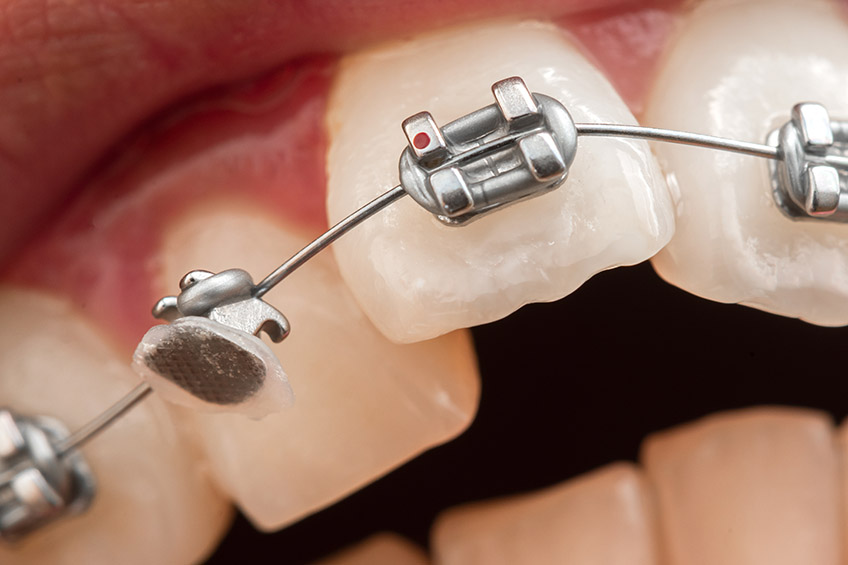Introduction
Dealing with a severe toothache can be an incredibly painful and distressing experience. Unfortunately, dental emergencies can happen at any time, and it’s not always possible to immediately access emergency dental care. In such situations, it’s important to know what steps you can take to alleviate the pain and discomfort while waiting for professional help. This blog post will provide you with some effective remedies and self-care techniques to help relieve a severe toothache temporarily.
Rinse with warm saltwater
One of the first things you can do to alleviate a severe toothache is to rinse your mouth with warm saltwater. Mix half a teaspoon of salt in a glass of warm water and swish it around your mouth for about 30 seconds before spitting it out. This can help reduce inflammation and provide temporary relief.
Apply a cold compress
If you’re experiencing swelling along with your toothache, applying a cold compress to the affected area can help reduce the inflammation. Wrap a bag of ice or a cold pack in a thin cloth and hold it against your cheek for 15 minutes. Repeat this process every few hours as needed.
Use over-the-counter pain relievers
Over-the-counter pain relievers such as ibuprofen or acetaminophen can help alleviate the pain while you wait for emergency dental care. Follow the instructions on the packaging and consult with a healthcare professional if you have any underlying medical conditions.
Avoid hot or cold foods and drinks
Consuming hot or cold foods and drinks can exacerbate the pain of a severe toothache. Stick to room temperature or lukewarm foods and beverages to minimize discomfort. Avoiding extremely sugary or acidic foods is also recommended as they can irritate the affected area.
Apply a numbing gel

You can find over-the-counter numbing gels or ointments specifically designed for toothaches. Apply a small amount of the gel directly to the affected tooth and surrounding gums. This can provide temporary relief by numbing the area.
Use clove oil
Clove oil has natural analgesic properties and can help alleviate toothache pain. Soak a cotton ball in clove oil and gently apply it to the affected tooth. Be cautious not to swallow the oil, as it can cause stomach irritation.
Avoid putting pressure on the tooth
If you have a severe toothache, try to avoid putting pressure on the affected tooth while waiting for emergency care. This means avoiding chewing on that side of your mouth.
Summary
When faced with a severe toothache and unable to immediately see a dentist, there are several things you can do to find temporary relief. First and foremost, rinsing your mouth with warm saltwater can help reduce inflammation and alleviate pain. Applying a cold compress to the affected area can also provide temporary numbing and reduce swelling. Over-the-counter pain relievers, such as ibuprofen, can be taken to manage the pain, but it’s important to follow the recommended dosage. Avoiding hot or cold foods and drinks, as well as sticky or hard foods, can prevent further irritation. Additionally, using a numbing gel or clove oil on the affected tooth can provide temporary relief. However, it’s crucial to remember that these remedies ar e not permanent solutions, and seeking professional dental care as soon as possible is essential to address the underlying cause of the toothache.
- Q: What can I do to relieve a severe toothache while waiting for emergency care?
- A: There are a few things you can try to alleviate the pain temporarily:
- Apply a cold compress to the affected area to reduce swelling.
- Rinse your mouth with warm saltwater to help cleanse the area and reduce inflammation.
- Take over-the-counter pain relievers like ibuprofen to help manage the pain.
- Avoid extremely hot or cold foods and drinks, as they can worsen the pain.
- Use an over-the-counter numbing gel or clove oil to temporarily numb the area.
- Q: Should I try to remove any stuck food particles around the painful tooth?
- A: It is generally recommended to gently floss around the affected tooth to remove any trapped food particles. Be cautious not to apply too much pressure or force, as it may worsen the pain or cause bleeding.
- Q: Is it advisable to apply aspirin directly to the tooth or gums?
- A: No, it is not recommended to apply aspirin directly to the tooth or gums. Aspirin can cause tissue damage if applied directly, leading to additional complications. It is best to take aspirin orally as directed on the packaging.
- Q: How long can I wait for emergency dental care before it becomes a serious problem?
- A: It is essential to seek emergency dental care as soon as possible for severe toothaches. Delaying treatment can lead to further complications, such as infection or abscess formation. Contact your dentist immediately to schedule an emergency appointment.
- Q: What should I avoid doing while waiting for emergency dental care?
- A: While waiting for emergency dental care, it is important to avoid certain actions that may worsen the condition:
- Avoid placing aspirin directly on the tooth or gums.
- Avoid using sharp objects to try and remove stuck food particles.
- Avoid consuming extremely hot or cold foods and drinks.
- Avoid

Welcome to my website! I’m Hayden Watkins, a dedicated and passionate Dental Surgeon with years of experience in providing exceptional dental care. I am thrilled to have the opportunity to share my knowledge and expertise with you through this platform.

